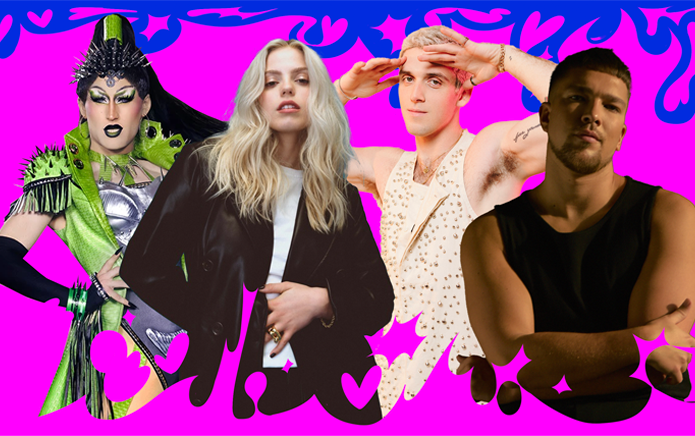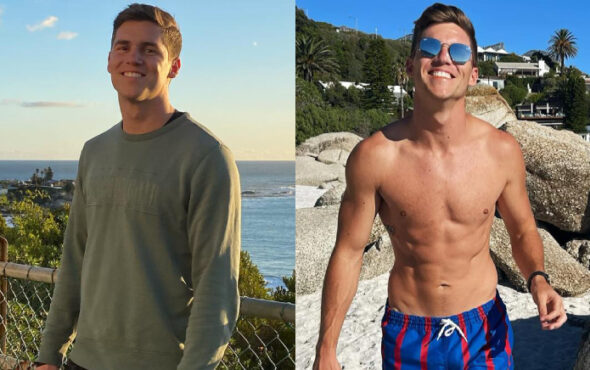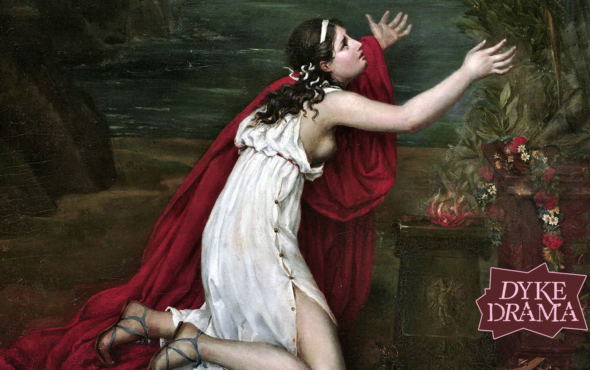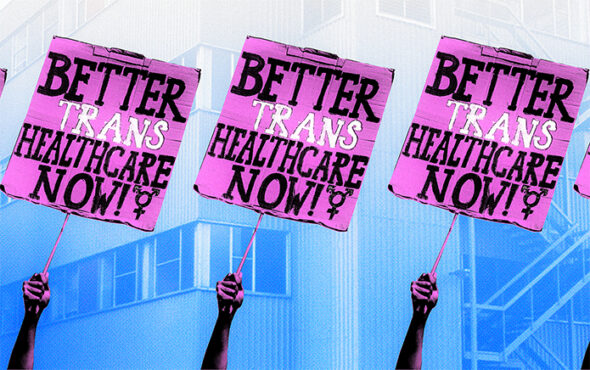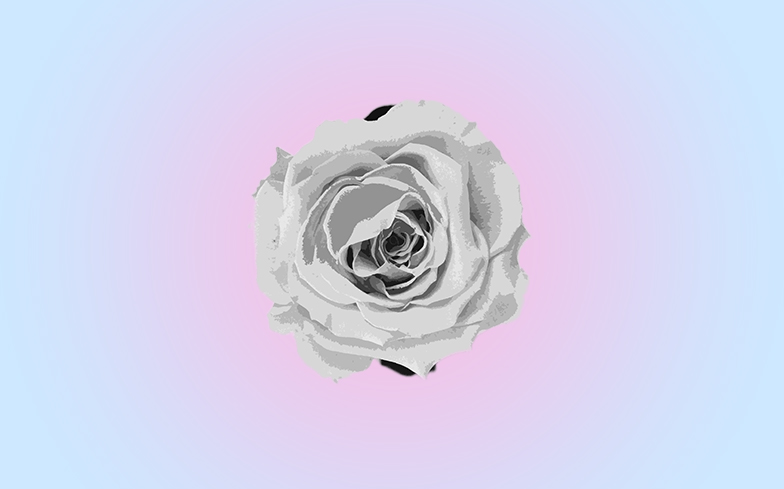
This Trans Day of Remembrance is a time to remember those we’ve lost. It’s also a time to reflect on how different things could be. I’m sharing my truth as a working class, trans young person so the future can be different.
Growing up LGBTQ+ is not an experience you can homogenise to the whole community. Many things will shape our experiences. For me, one of the biggest factors in my journey was where that journey was taking place.
I grew up in a small town in the North East of England. It was the quintessential working class northern life. My friends and I would play among the abandoned shipyards along the river Wear, and school trips took us down mines that had been operational only twenty years before, and miner’s slang remained common jargon for us all.
I had a happy childhood all told, surrounded by friends and loved by my family – but growing up in an area so heavily rooted in working-class tradition undoubtably impacted my journey as a young LGBTQ+ person.
During my childhood, the predominant mindset throughout the North East was still very much one of traditional manual labour and its resulting cultural expectations. It was not expected that children would do A-Levels or go to university. It was not expected that young lads would do anything other than finish school at 16 and take an apprenticeship to become perhaps a bricklayer, a joiner, a mechanic.
It felt like if I could just fit into the quintessential working-class man’s box, then I could just about be accepted but that wasn’t my truth either.
Young girls were encouraged to take similarly vocational paths into courses deemed more appropriate. Hairdressing, nail technicians, and childcare were popular choices. Though things have improved vastly in the last decade or so, during my youth the North East was still very much rooted in the norms decades of industry had shaped.
Not only were gender roles so seemingly sharply defined, it was never assumed that anyone would grow up and do anything other than grow up, enter a heterosexual marriage and have a large family.
Taking all this into account, I think it becomes easy to see where I – a child who was assigned female at birth and yet who always knew I wasn’t a little girl and who was beginning to realise I wasn’t straight – became confused.
Although I was very lucky to have liberal and accepting parents who didn’t care if I cut my hair short or wore so-called ‘boys’ clothing, I was very much outcast at school for not being the young lady they thought I should be.
Looking back now, classmates taunting me for “looking like a boy” feels laughable – looking ‘like a boy’ brings me so much gender euphoria! However at 12 years old, never having heard the word ‘transgender’ and with no idea at all that it was even possible to identify as something other than your assigned gender, I just felt lost and confused.
I felt most comfortable in my body presenting this way but my classmates could not comprehend traditional gender roles being subverted. To them, I was a girl who refused to look or act like they believed a girl should, and that meant I became a target.
A little later on, I got my first girlfriend. I wasn’t out as transgender and therefore still perceived as a young woman, so people at my school made assumptions that I was a lesbian. This seemed to help people understand my rejection of feminine expectations and that would’ve been great but it wasn’t my truth.
Now that I was presenting in a more masculine fashion and I had a girlfriend, all I needed to do was take a ‘boys’ apprenticeship and I would finally fit into a box that they understood. It felt like if I could just fit into the quintessential working-class man’s box, then I could just about be accepted but that wasn’t my truth either.
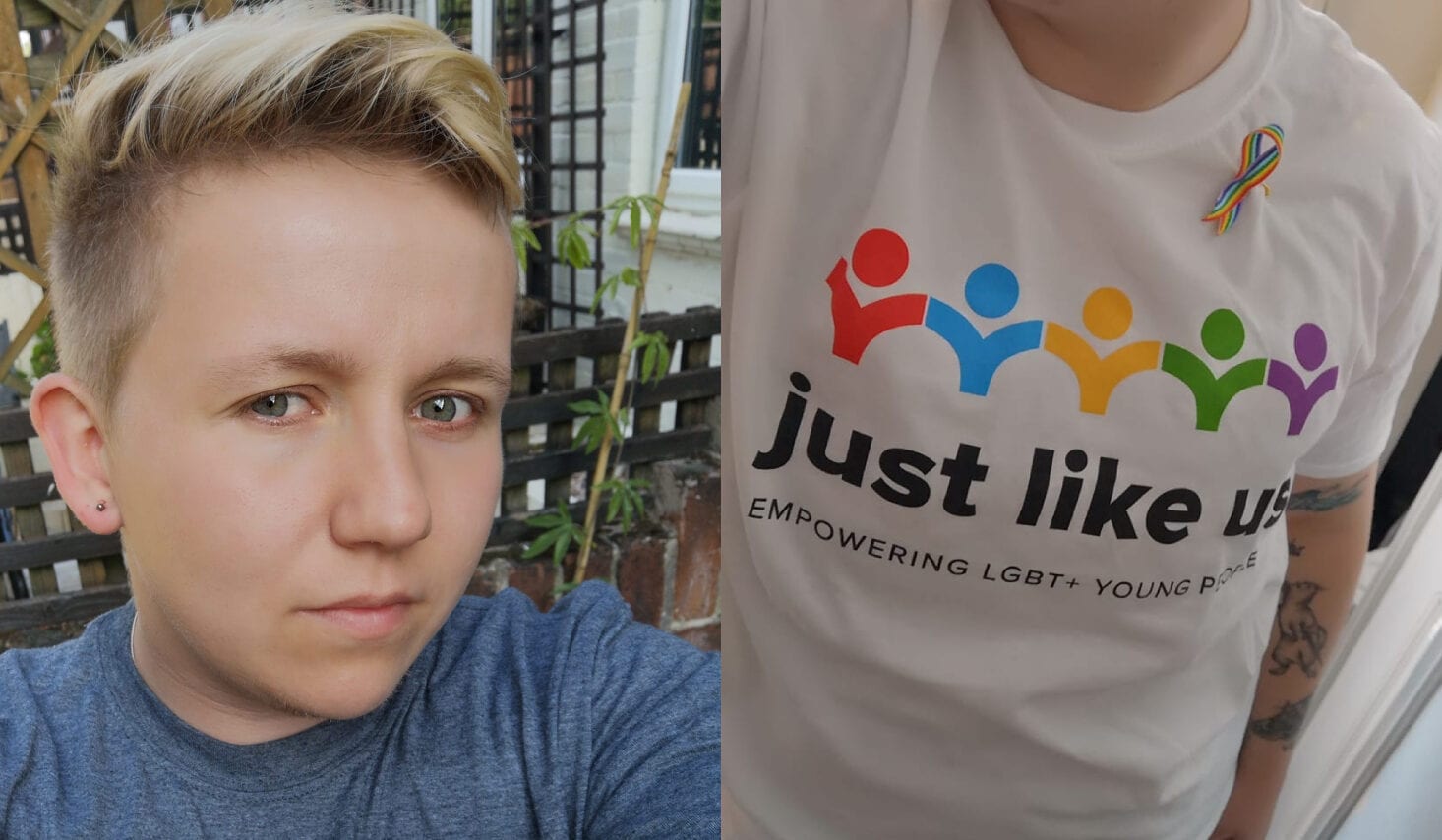
For a while I did identify as a lesbian. Even though I knew this wasn’t quite who I was, it was the closest to understanding and acceptance I had felt outside of my close circle of friends and family. It wasn’t exactly me but to be accepted and understood is something that every young person craves, especially when they do not fully understand or accept themselves.
I didn’t go to university, as was the case for the majority of the children my age from my town, and so I felt I missed another opportunity to go and find myself. I still felt stuck. It wasn’t until I was 20 years old and eventually moved away from my hometown to an area with a huge population of young LGBTQ+ people that I began to learn about the community.
I heard the terms bisexual and transgender and all of a sudden my eyes were opened. I began to learn about language that fits my truth.
For the first time, I was also surrounded by people who I could see myself in – people who were proudly and authentically themselves. That was the push I needed to be able to accept myself, to stop trying to fit myself into identities that were not my own just to feel some sort of acceptance or understanding.
While I had a largely happy and safe childhood, I know that my many years of confusion, upset and bullying could have been so different for me if LGBTQ+ identities were spoken about more in working class towns.
If my peers at school had been educated on LGBTQ+ identities then perhaps they wouldn’t have been so harsh towards me, an LGBTQ+ person they did not understand.
If I had been educated on LGBTQ+ identities I would have had the language to understand myself, my feelings and my identities. Perhaps I would not have spent so long hiding away from myself.
Most importantly, meeting a young transgender person when I myself was struggling would have been revolutionary to my vision of my future – I would have been able to see myself as out, happy and thriving rather than imagining my entire life struggling to conform to versions of myself that others wanted to see.
This Trans Day of Remembrance, a day on which we remember all of our transgender siblings who have been lost to violence or suicide, I am reminded that I was lucky.
Knowing what a difference LGBTQ+ visibility and inclusive education can make to young people like myself is what drove me to join Just Like Us. It’s a charity that sends 18 to 25-year-old LGBTQ+ people into schools to give talks on being LGBTQ+.
Having something like this at my school when I was struggling would have provided that light I ended up not seeing until I was already 20 years old. It’s what 12 year old me so desperately needed.
It also would have empowered my peers with knowledge and a clear understanding of why allyship is so vital. Knowing that I can be that person to other young people who may be struggling the way I was at school is such an amazing feeling, but we still have a long way to go.
This Trans Day of Remembrance, a day on which we remember all of our transgender siblings who have been lost to violence or suicide, I am reminded that I was lucky.
I experienced bullying and self-hatred that no human should go through but my support circle was strong enough that I pulled through. My sibling even came to Pride with me.
Many trans people are not as lucky as me. I am privileged to be able to stand up proud and talk about my truth, working with organisations such as Just Like Us to increase awareness about transgender people, and all LGBTQ+ identities.
It is my hope that one day there will be children growing up in old mining towns who don’t have to struggle the way that I did, that their expression and identity will be celebrated rather than challenged and Just Like Us is helping me achieve that vision.
If you’d like to support Just Like Us, please visit their website.
